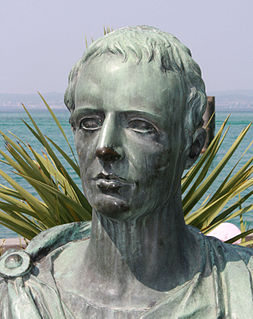A Quote by Cassandra Clare
Atque in pepetuum, frater, ave atque vale,” he whispered. The words of the poem had never seemed so fitting: Forever and ever, my brother, hail and farewell.
Related Quotes
He should have known better because, early in his learnings under his brother Mahmoud, he had discovered that long human words (the longer the better) were easy, unmistakable, and rarely changed their meanings, but short words were slippery, unpredictable changing their meanings without any pattern. Or so he seemed to grok. Short human words were never like a short Martian word - such as grok which forever meant exactly the same thing. Short human words were like trying to lift water with a knife. And this had been a very short word.




























